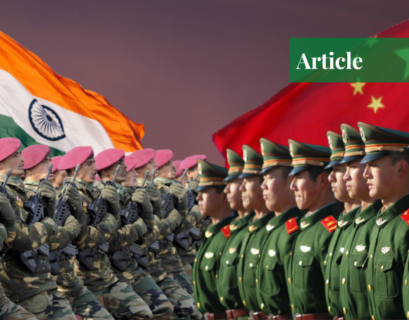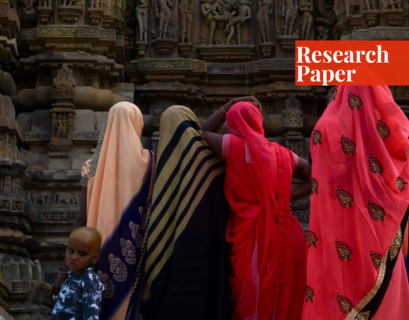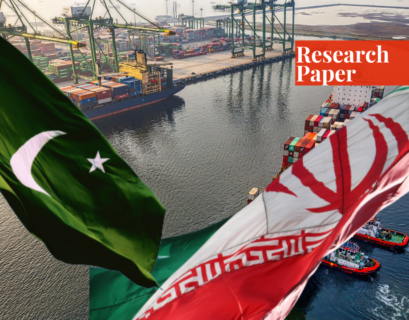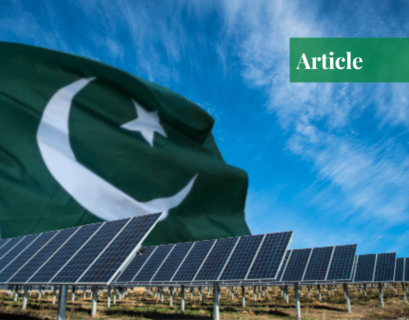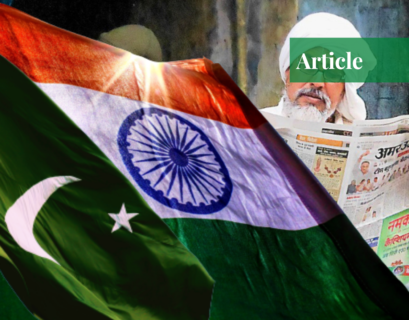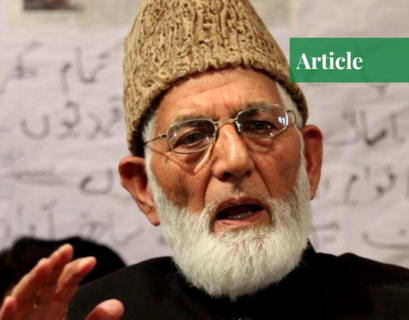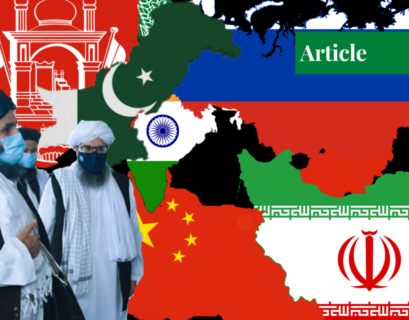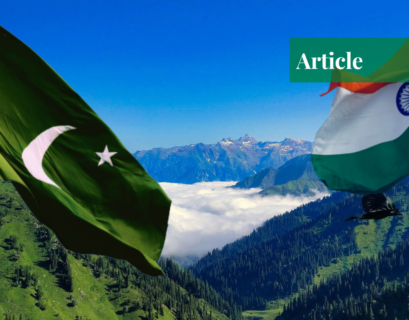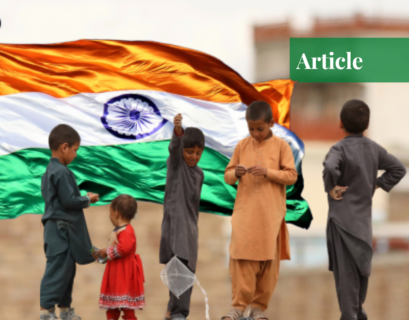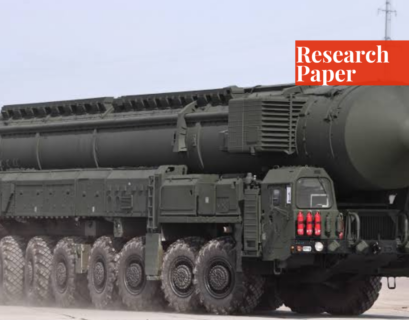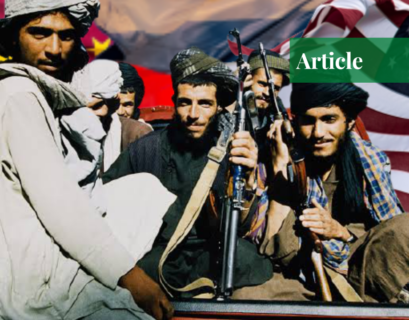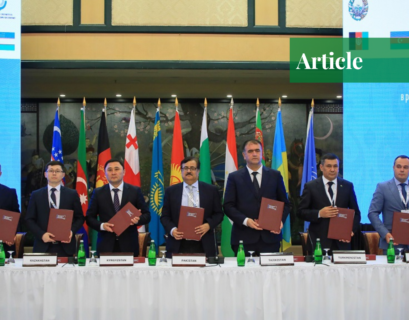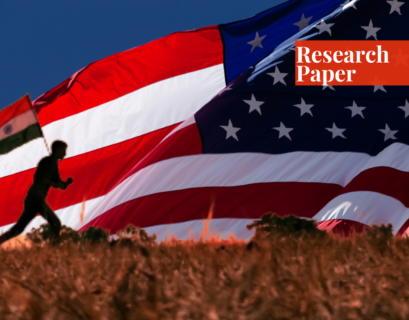The Border Dispute Between China and India: An Uncompromising Standoff
The author, Muhammad Hamza Tanvir, discusses the escalating border conflicts between India and China. Alongside highlighting the history of the conflict, he showcases how the Indian media has reported new confrontations between India and China over the area of Arunachal Pradesh, and how this is heightening tensions between the two countries again.
Dowry Deaths in India: A Harrowing Reality
On average, 7 thousand women die in India each year due to dowry harassment. The dowry culture in India has penetrated every social stratum and is so deeply embedded in the societal structure that despite being declared illegal, it openly persists. The author, Lyba Mobeen, analyzed several cases of dowry deaths and harassment to explain how women in India are threatened, beaten, starved, and even murdered due to the greed of their husbands and in-laws. She argues that the continuation of dowry can be attributed to societal acceptance and India’s socio-economic and patriarchal structure. On top of that, since many Indian women are unaware of their rights under the Dowry Prohibition Act, they continue to suffer in silence.
The Gwadar Port of Pakistan vs the Chabahar Port of Iran: Analyzing the Changing Dynamics
China has exhibited a deep interest in developing the Gwadar Port of Pakistan, under the China–Pakistan Economic Corridor (CPEC), for the enhancement of its strategic and economic benefits, while India is investing in the Chabahar Port under the tripartite Preferential Trade Agreement (PTA) with Iran and Afghanistan, with the drive to counter China’s growing presence in the region.
Both ports are situated at the international energy trading route and provide connectivity to different regions of the world including Central Asia, the Middle East, Africa and Europe. Such equalizing behavior of both states is not just causing problems for them but also for the neighboring states such as Afghanistan, Iran, and Pakistan, in this regard, which are the key stakeholders in the construction of these ports.
The authors, Ms. Kinza Shah and Mehwish Kayani, look into the geostrategic and geo-economic importance of both ports. This paper also explores the stances given by the major states of the …
The AUKUS Pact and Its Impact on Regional & Global Politics
The author, Muhammad Hamza Tanvir, intends to apprise the readers of the AUKUS pact – a trilateral security agreement between Australia, the United Kingdom, and the United States – and the impact it has on Sino-Australian relations. This article also examines what this pact would mean for the Southeast Asian region while analyzing the impacts of this deal on ASEAN, QUAD, and NATO.
What Are the Challenges of Switching to Renewable Energy Sources?
The author, Dr. Taut Bataut, focuses on the challenges associated with switching to renewable energy from hydrocarbons. While the advantages of renewables are substantial, the implementation of such schemes is fraught with complications. Pakistan remains predominantly reliant on fossil fuels as its primary source of energy. Hence, a more pragmatic and long-term policy that incentivizes renewables and gradually enhances their contribution to the energy mix is crucial for success.
The Indian Media about Pakistan: A Pandemic of Fake News
The Indian media’s acquaintance with fake news is not something new. The EU Disinfo Lab reports that in the last 15 years, India has resurrected dead people, NGOs, and 750 media outlets and impersonated EU institutions just to spread false information and news about its rivals and Pakistan. The author notes that the Indian media’s warmongering style of reporting fake news about Pakistan, after the Pulwama attack and the recent Taliban takeover in Afghanistan, has not gone unnoticed by the international community. The author asserts that contrary to India’s intentions, this fake news propaganda has now revealed the state’s true identity and disturbed the peace and stability of South Asia.
Syed Ali Shah Geelani – The Unyielding Hero of Kashmir
Syed Ali Shah Geelani is the man known for his resolute courage and resistance to India’s illegal occupation of Kashmir. Throughout his life, he was a symbol of hope for the people of Jammu and Kashmir.
His death on 1st September, 2021, has left many saddened, but his lifelong struggle for the inclusion of Jammu and Kashmir into Pakistan will continue to live.
The Taliban Government in Afghanistan: Implications for Pakistan, China, India, Russia & Iran
The conclusion of the war in Afghanistan played out in the Taliban’s favour. With the Taliban now in power and forming the government, their alliances, which the author noted in his previous piece, will rearrange the geopolitical landscape of the region while also determining the fate of the global powers. Featured image credits: Ministry of Foreign Affairs, Pakistan
Jammu and Kashmir’s History: An Introduction to the Issue
The Kashmir issue remains elusive, and many, if not all, know of the current conflict between India and Pakistan over Kashmir.
The author seeks to apprise the readers of the origins of the former princely state. It all began with the East India Company selling Jammu and Kashmir – the second-largest principality during British rule – to Gulab Singh.
Pro-Israel Media Coverage of the Israel-Palestine Conflict
Being one of the longest conflicts in the Middle East, the Israel-Palestine conflict has remained in the eye of the international media. The author notes that the news coverage of the conflict has never been neutral. Through an analysis of the news coverage of the BBC, The New York Times, The Times of India, and Al-Jazeera, she reveals how misrepresentation, framing, linguistic determinism, and media manipulation can be observed in the news coverage of the Israel-Palestine conflict. While this media manipulation has benefited them and served their interests, it has impacted how the audience of specific media outlets views the conflict.
How India’s Investment in Afghanistan Has Failed Post-US Exit
In the last two decades, India has invested $3 billion in Afghanistan on infrastructure development. Through numerous projects, it has not only maintained its presence in the state but also backed the former Afghan government of Ashraf Ghani. The recent takeover of the Taliban in Afghanistan has placed India in a tight spot and sent years of Indian investment down the drain. India’s blatant anti-Taliban policy has made it difficult for it to maintain good relations with Afghanistan and sponsor terrorism in Pakistan through the Afghan soil. Moreover, the possible emergence of a new regional bloc—comprising of China, Russia, Pakistan, Afghanistan, and Iran—after the Taliban takeover has further threatened India’s influence in the region.
The Russian S-400 Missile Deal with India: Implications for the Region
Technology has played an important role in shaping international politics. During the Cold War, both superpowers, that is, the Soviet Union and the United States were involved in the strategic rivalry and the arms race, with both trying to undermine the other’s defense capabilities.
Russia has built many surface-to-air batteries and has now developed highly advanced missile defense systems such as the S-400 missile defense system. During the 2018 summit in New Delhi, India signed a deal with Russia for 5 units of the Russian S-400 defense system which, the author believes, can negatively affect the strategic stability of South Asia.
How Regional Powers Are Strengthening Relations with the Taliban
With a looming civil war and he Taliban’s growing control in Afghanistan, the author examines the interactions between the Taliban and many powerful nation states.
The Taliban’s alliance will China and Russia, among others, would signal a threat to the US’s hegemony and India’s influence in the region.
Pakistan: The Gateway Between South Asia and the Central Asian Republics
Since Pakistan is located at the crossroads of Central Asia and South Asia, any development in the two regions has direct implications for it. At the same time, Pakistan’s geographical location enables it to act as a bridge between the Central Asian Republics and the South Asian states. The author, Hajra Sajjad, notes that through trade agreements and cooperation in security-related areas, the regional connectivity between the two states can be increased. She further states that strengthening the ties between the two states will counter India’s increasing influence in the regions, providing the states of the regions with some relief.
Thriving US and Indian Relations: Implications for Pakistan & China
Since the Cold War, the US and India have signed a series of strategic agreements, strengthening their alliance. The US-India nexus stems from the threat of a rising China in the international arena. The author, Muhammad Abubaker, notes that the US has capitalized on the Indian regional aspirations and effectively used India to advance America’s strategic goals in Asia vis-à-vis China. He explains that this strategic cooperation between the two powers has impacted China, Pakistan, and the Asian region as a whole. It has aggravated Pakistan’s security dilemma and forced it out of the American bloc. The insecurity caused by this has compelled Pakistan to strengthen its relations with China and look for an ally in Russia.
What Is Pegasus Spyware and How Will It Change Cyberwarfare?
Pegasus spyware is a spying software developed by NSO Group, an Israeli surveillance company. Many governments and political leaders have been accused of using the software to observe their targets’ movements – the targets being prominent journalists and important political figures like the current prime ministers of Pakistan, Egypt, and Morocco.
Earlier versions used a simple text message to prompt the installation of the malware on the targeted device. The latest versions are able to automatically install it by simply calling the targeted phone.
The Rise of Russia and China: Is America in Decline?
After spending almost three decades as the world’s sole superpower, the United States of America has finally reached the point where its decline begins. The US economic, military, and political prowess is being rivaled by Russia and China. Abdul Majeed, a political researcher and former member of the Youth Parliament of Pakistan, notes that America’s share in the world economy has fallen from 40% in 1960 to 24% in 2019. Whereas, China’s share is increasing due to the massive infrastructure projects it has undertaken in Asia and Africa. Similar to its economic decline, the US has fallen behind Russia and China in technological development, and the 5G and space race. The author argues that the superpower is no longer the ideal democratic state. Not only has it been marked as a flawed democracy for the fifth consecutive year, but it has also lost its ability to militarily protect its allies, and as Russia and China develop, so do the threats to the US hegemony.
